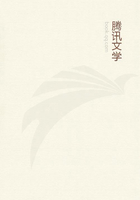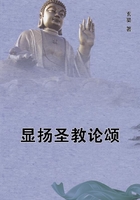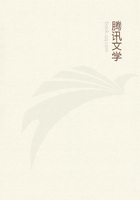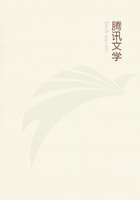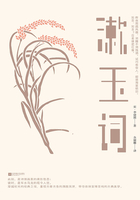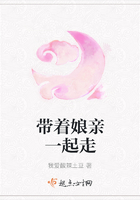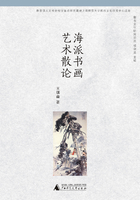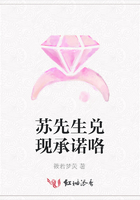(1) Here Josephus uses the very word koinopltagia, "eating things common," for "eating things unclean;" as does our New Testament, Acts 10:14, 15, 28; 11:8, 9; Romans 14:14, (2) The great number of these Jews and Samaritans that were formerly carried into Egypt by Alexander, and now by Ptolemy the son of Lagus, appear afterwards in the vast multitude who as we shall see presently, were soon ransomed by Philadelphus, and by him made free, before he sent for the seventy-two interpreters;in the many garrisons and other soldiers of that nation in Egypt;in the famous settlement of Jews, and the number of their synagogues at Alexandria, long afterward; and in the vehement contention between the Jews and Samatitans under Philometer, about the place appointed for public worship in the law of Moses, whether at the Jewish temple of Jerusalem, or at the Samaritan temple of Gerizzim; of all which our author treats hereafter.And as to the Samaritans carried into Egypt under the same princes, Scaliger supposes that those who have a great synagogue at Cairo, as also those whom the Arabic geographer speaks of as having seized on an island in the Red Sea, are remains of them at this very day, as the notes here inform us.
(3) Of the translation of the other parts of the Old Testament by seventy Egyptian Jews, in the reigns of Ptolemy the son of Lagus, and Philadelphus; as also of the translation of the Pentateuch by seventy-two Jerusalem Jews, in the seventh year of Philadelphus at Alexandria, as given us an account of by Aristeus, and thence by Philo and Josephus, with a vindication of Aristeus's history;see the Appendix to Lit.Accorap.of Proph.at large, p.
117--152.
(4) Although this number one hundred and twenty drachmee [of Alexandria, or sixty Jewish shekels] be here three times repeated, and that in all Josephus's copies, Greek and Latin; yet since all the copies of Aristeus, whence Josephus took his relation, have this sum several times, and still as no more than twenty drachmae, or ten Jewish shekels; and since the sum of the talents, to be set down presently, which is little above four hundred and sixty, for somewhat more than one hundred thousand slaves, and is nearly the same in Josephus and Aristeus, does better agree to twenty than to one hundred and twenty drachmae;and since the value of a slave of old was at the utmost but thirty shekels, or sixty drachmae; see Exodus 21:32; while in the present circumstances of these Jewish slaves, and those so very numerous, Philadelphus would rather redeem them at a cheaper than at a dearer rate; - there is great reason to prefer here Aristeus's copies before Josephus's.
(5) We have a very great encomium of this Simon the Just, the son of Onias, in the fiftieth chapter of the Ecclesiasticus, through the whole chapter.Nor is it improper to consult that chapter itself upon this occasion.
(6) When we have here and presently mention made of Philadelphus's queen and sister Arsinoe, we are to remember, with Spanheim, that Arsinoe was both his sister and his wife, according to the old custom of Persia, and of Egypt at this very time; nay, of the Assyrians long afterwards.See Antiq.B.XX.
ch.2.sect.1.Whence we have, upon the coins of Philadelphus, this known inscription, "The divine brother and sister."(7) The Talmudists say, that it is not lawful to write the law in letters of gold, contrary to this certain and very ancient example.See Hudson's and Reland's notes here.
(8) This is the most ancient example I have met with of a grace, or short prayer, or thanksgiving before meat; which, as it is used to be said by a heathen priest, was now said by Eleazar, a Jewish priest, who was one of these seventy-two interpreters.The next example I have met with, is that of the Essenes, (Of the War, B.II.ch.8.sect.5,) both before and after it; those of our Savior before it, Mark 8:6; John 6:11, 23; and St.Paul, Acts 27:35; and a form of such a grace or prayer for Christians, at the end of the fifth book of the Apostolical Constitutions, which seems to have been intended for both times, both before and after meat.
(9) They were rather political questions and answers, tending to the good and religious government of mankind.
(10) This purification of the interpreters, by washing in the sea, before they prayed to God every morning, and before they set about translating, may be compared with the like practice of Peter the apostle, in the Recognitions of Clement, B.IV.ch.3., and B.V.ch.36., and with the places of the Proseuchre, or of prayer, which were sometimes built near the sea or rivers also;of which matter see Antiq.B.XIV.ch.10.sect.9,3; Acts 16:13.
16.
(11) The use of oil was much greater, and the donatives of it much more valuable, in Judea, and the neighboring countries, than it is amongst us.It was also, in the days of Josephus, thought unlawful for Jews to make use of any oil that was prepared by heathens, perhaps on account of some superstitions intermixed with its preparation by those heathens.When therefore the heathens were to make them a donative of oil,: they paid them money instead of it.See Of the War, B.II.ch.21.sect.2; the Life of Josephus, sect.13; and Hudson's note on the place before us.
(12) This, and the like great and just characters, of the justice, and equity.and generosity of the old Romans, both to the Jews and other conquered nations, affords us a very good reason why Almighty God, upon the rejection of the Jews for their wickedness, chose them for his people, and first established Christianity in that empire; of which matter see Josephus here, sect.2; as also Antiq.B.XIV.ch.10.sect.22, 23; B.XVI.ch.
2.sect.4.
(13) The name of this place, Phicol, is the very same with that of the chief captain of Abimelech's host, in the days of Abraham, Genesis 21:22, and might possibly be the place of that Phicol's nativity or abode, for it seems to have been in the south part of Palestine, as that was.

